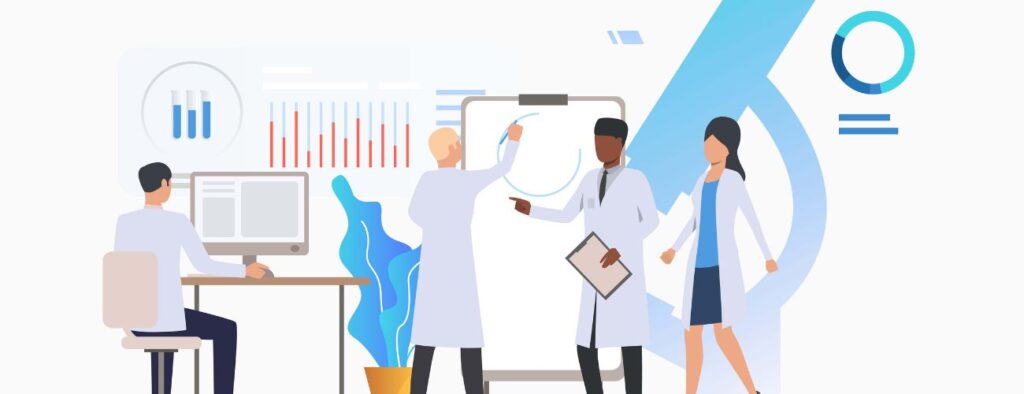The realm of data and analytics in healthcare is vast. Surprisingly, a recent MIT and Databricks study revealed that a mere 13% of organizations are realizing their data strategy’s potential. Given the numerous challenges healthcare providers face, modernizing data and analytics capabilities has become more critical than ever. Our driving question is: how can we assist healthcare entities in navigating this modernization?
Embracing comprehensive modernization
Healthcare organizations are inching towards data modernization, but the true essence and benefits of this evolution remain untapped. Simple migration to the cloud isn’t enough; to truly leverage the investment, organizations must transcend traditional practices.
Data Modernization: Pillar of modern healthcare
- Cost and complexity reduction: It’s not just about migrating data; it’s about restructuring for efficiency and value. By retiring obsolete on-prem systems and adopting cloud-based operations, organizations can reap significant ROI.
- Strengthening data security: With data breaches becoming alarmingly frequent, fortifying data security is paramount. The advanced capabilities of cloud solutions, especially those from powerhouses like AWS, can greatly bolster data defense mechanisms.
- Harnessing modern development: Beyond mere data migration, embracing practices like DevOps, continuous integration, and containerization can significantly amplify an organization’s data potential.
In this era, healthcare organizations grapple with a myriad of data sources:
-
- Medical IoT devices, telehealth platforms, digital engagement mediums.
- Conventional sources like EMRs and lab systems.
- Unstructured data from clinical notes, imaging, and social media.
- Managing this colossal data requires platforms equipped for massive data ingestion, storage, and processing. With services such as AWS Glue, Athena, and Redshift, cloud platforms present a ready solution, scaling as per demand.

Analytics Modernization: From raw data to valuable insight
While data is the foundation, the true essence lies in deriving actionable insights from it.
Focusing on value
Instead of being overwhelmed by the sheer data volume, the aim should be to convert this data into meaningful analytics. This includes ensuring smooth access to information, offering visualization tools, and promoting self-service analytics while maintaining data governance.
Future with AI and Robotic Process Automation (RPA)
To be future-ready, there’s a pressing need to integrate AI and RPA into the healthcare analytics framework. This includes:
- Instilling trust in the data.
- Addressing inherent biases.
- Facilitating predictive models and machine learning algorithms.
- Utilizing ML-Ops tools for better management of models and algorithms.
Such advancements not only elevate healthcare understanding but can also drastically reduce the strain on healthcare professionals.
A Paradigm shift in approach
Modernization isn’t confined to technology; it also encompasses the approach towards solution development. Adopting an agile, use-case-driven approach, and viewing analytics solutions from a product perspective ensures that the focus remains on the product’s value rather than the creation process.
As we delve into the era of data analytics modernization, it’s crucial to understand that it’s a holistic process, encompassing data management, analytics, security, and approach. By capitalizing on these facets, healthcare organizations can truly revolutionize the way they operate, delivering unparalleled value.

